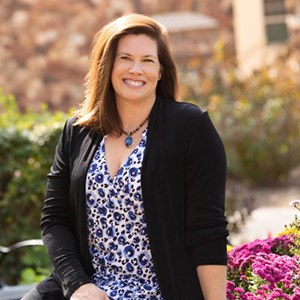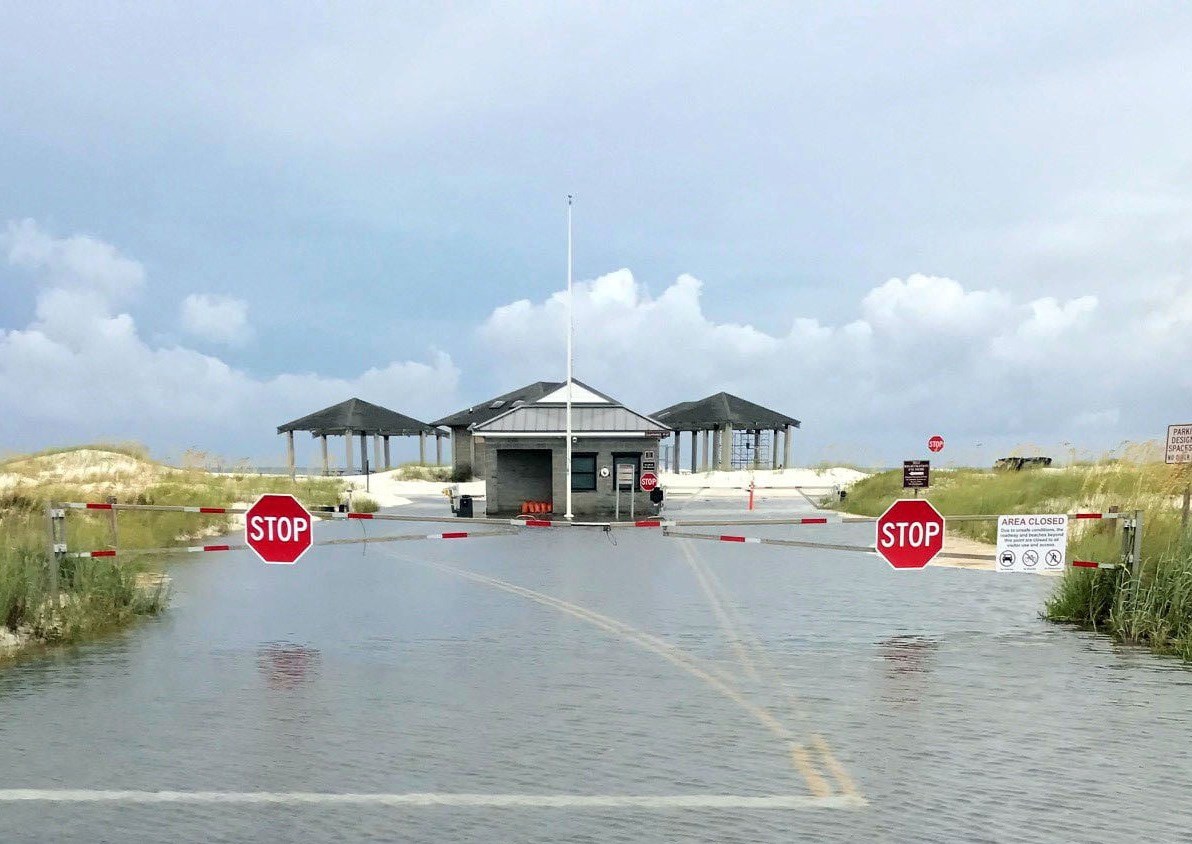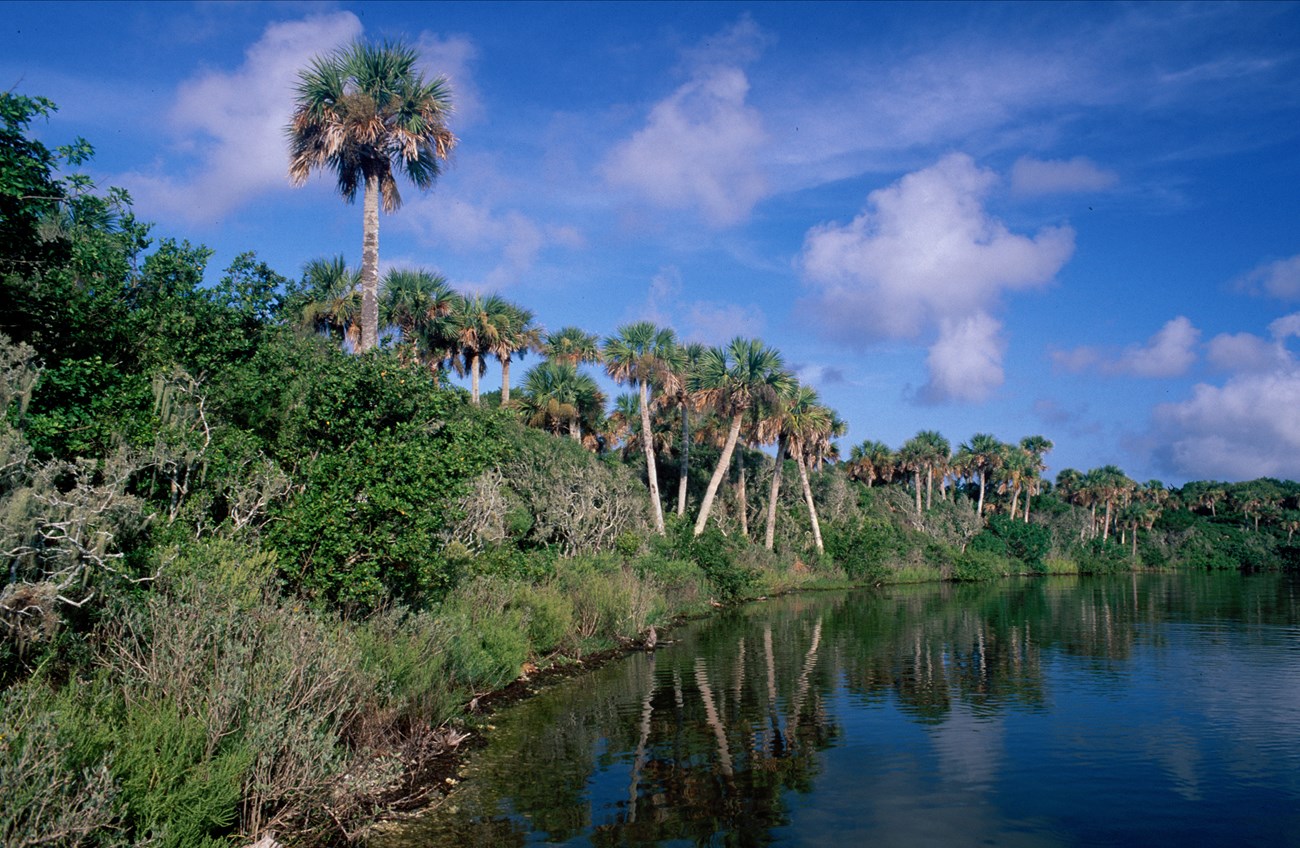Last updated: February 4, 2022
Article
NPS Scientist Feature: Dr. Rebecca Beavers gives her expertise on the US Army Corps of Engineers’ podcast, Engineering with Nature Episode 6
The last episode, Applying EWN Strategies at National Parks and Refuges, featured a robust discussion about the significant impacts of climate change on National Parks and Wildlife Refuges and how Engineering With Nature approaches are being used to protect these precious natural resources and make them more resilient.
In this episode, host Sarah Thorne and Jeff King, Deputy Lead of the Engineering With Nature Program at the U.S. Army Corps of Engineers, continue the discussion with Rebecca Beavers, Coastal Geology and Adaptation Coordinator for the National Park Service and Scott Covington, Senior Ecologist for Refuges within the U.S. Fish and Wildlife Service. They’re talking about the importance of connecting people with nature through the parks and refuges and helping them to better understand climate change.


NPS photo
The 2016 Coastal Adaptation Strategies Handbook, which Rebecca co-edited for the National Park Service (NPS), emphasizes the importance of letting people see the challenges facing the parks, along with how nature-based solutions are being deployed. Rebecca describes how the park service is adapting to climate change, including how the NPS interacts with visitors and other stakeholders: “Some of our parks, for example, Cape Hatteras National Seashore, are incredibly low lying. People have to watch for timing for when they can actually visit. It doesn't have to be a Nor'easter storm pushing a lot of water into the shoreline. Some of our parks, such as Gulf Islands National Seashore, can see flooding due to a large rain event.” As a result, the National Park Service and partners such as Western Carolina University are conducting vulnerability assessments, looking at where trails, parking lots, and campgrounds are located and having to make some difficult choices. “Part of our mission is for visitor use today, and for the enjoyment and use for future generations. So, we’re looking at what we can do now, but also planning for the future and looking at where some of those major impacts are coming from, not only coastal change, but also climate change.”

NPS Photo
Rebecca adds that sometimes the mission on a project can change with stakeholder input. She describes how the initial intent of a project at Canaveral National Seashore in Florida was to protect some archeological resources, while providing some additional natural resource benefits: “As the project has grown over 14 years, we have seen a lot of stakeholder engagement, over 64,000 volunteers. This major lagoon restoration project has improved water quality, reduced the nutrient load, and increased clarity of the water. At Mosquito Lagoon, we're looking at a successful community-based, partner-driven restoration. We've seen 91 oyster reefs restored and over two miles of shoreline stabilized. This has been a phenomenal project.” Rebecca goes on to describe how over 700,000 pounds of oyster shells that would otherwise go to a landfill are being used to help stabilize a section of shoreline: “These are the kinds of projects that appear to be a great win-win, but they also take a tremendous amount of collaboration and partner effort.”
Rebecca and Scott encourage listeners to get involved with their parks and refuges. Rebecca charged listeners to explore and support their national parks: “These parks are special places set aside for the benefit of all people. They are your parks. They are your refuges. Visit them. Learn about them. Talk about them and where you can, advocate for them. Because as Scott said, funding is a challenge for managing some of these places that are threatened by some of these major climate change impacts.”
Scott asked listeners to think about the natural features in their community and what is important to them personally: “What are the natural features that you're really interested in? Do you enjoy kayaking? Do you enjoy fishing? Go visit your local refuges. Look at what benefits they provide to you and think about that in the context of sea level rise. What other benefits are they providing? However you want to define it, there are more benefits than just the fact that it's pretty to look at, or it provides a place for wildlife. There are multiple benefits that come from protecting and using nature to help us restore systems.”
Jeff wraps up the episode by thanking the National Park Service and the Wildlife Refuge System for being wonderful partners, commenting that the EWN Program is going to be collaborating on more projects to build resilience in parks and refuges: “We’ll be looking at some really different strategies and solutions that we'd like to be able to deploy and evaluate their performance. Through these projects which incorporate EWN approaches, we hope to help preserve parks and refuges for future generations.”

